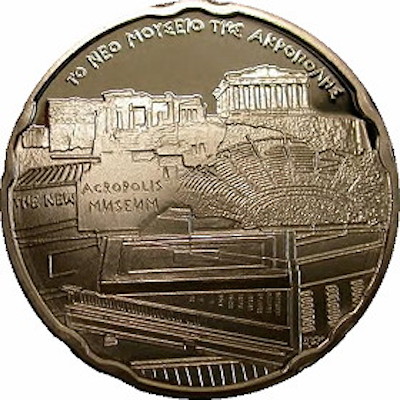The problem with not giving anyone central monetary control of a shared currency is that it can become very chaotic and disorganized if everyone is pursuing contradictory fiscal policy at the national level. To avoid this, when the Eurozone was being designed, members agreed that they would have to meet certain deficit and debt targets — keeping the budget deficit (amount spent more than collected) below a certain ratio for a few years — to join and then even below that initial target every year after becoming members.
(Sidebar: The major downside to this strategy is that the economies and parliaments remain separate despite sharing a currency, yet they can’t respond to specific economic conditions in their own countries without violating their deficit and debt targets. This extends recessions in some places, even as other members of the Eurozone continue to do well.)
By 1998, eleven countries had met their targets for joining the Eurozone. Greece was not one of them.
As of 1999, when the currency virtually launched for trading purposes but not ordinary people, Greece had still not met their target to join the Eurozone when it would launch on paper a few years later. In large part, this resulted less from generous social spending and pensions and more from Greece’s chronic inability to collect tax revenues from its citizens – one of the most tax-evading populations in the world.
They were also five years away from hosting the 2004 Summer Olympics, which they had been awarded in 1997. The games had run into huge budget problems and cost overruns, which the government (as a matter of national pride, being Greece) had to help manage. They needed to take on even more debt to pull off the games, which was the opposite of what they needed to join the Eurozone before currency began circulating.
US Investment Bank Goldman Sachs came up with some very elaborate and expensive schemes (see this detailed video explanation of the mechanics from the BBC), which essentially allowed Greece to get the money it needed, while hiding how big their debt (and yearly deficits) had become. This scam allowed Greece to join the Eurozone in 2001, while it was still in its virtual stage, in time to participate when the physical currency launched in January 2002.
 Outside observers started exposing the Goldman scam in 2003, and Greek government officials (from a new cabinet) revealed the deal in 2005, but EU regulators essentially pretended it had never happened until well after the crisis hit in 2009 (and continued to deny prior knowledge of it).
Outside observers started exposing the Goldman scam in 2003, and Greek government officials (from a new cabinet) revealed the deal in 2005, but EU regulators essentially pretended it had never happened until well after the crisis hit in 2009 (and continued to deny prior knowledge of it).
Meanwhile, Greece’s already bad debt situation was exploding from 2000 to 2008, as a direct result of the terms of the deal.
In a sense, like so many American homeowners before the end of 2007, Greece was given subprime loans it couldn’t possibly repay. Regulators and monetary authorities failed to perform due diligence ahead of the accession of Greece to the eurozone and then ignored the escalating danger as long as the rest of the global and European economy was doing fine. They only stepped in after the house of cards collapsed and then demanded round after round of budget cuts and other measures that hurt average Greeks who had nothing to do with the bad debt decisions that the rest of the Eurozone should have stepped in to prevent years earlier.
Greece played a part in setting up its own crisis, but the bigger picture is that Greece was failed by its peers and partners in the monetary union, and it was failed by abusive and manipulative lenders, who preyed upon a desperate government and gave them loans it never should have received in the first place.


